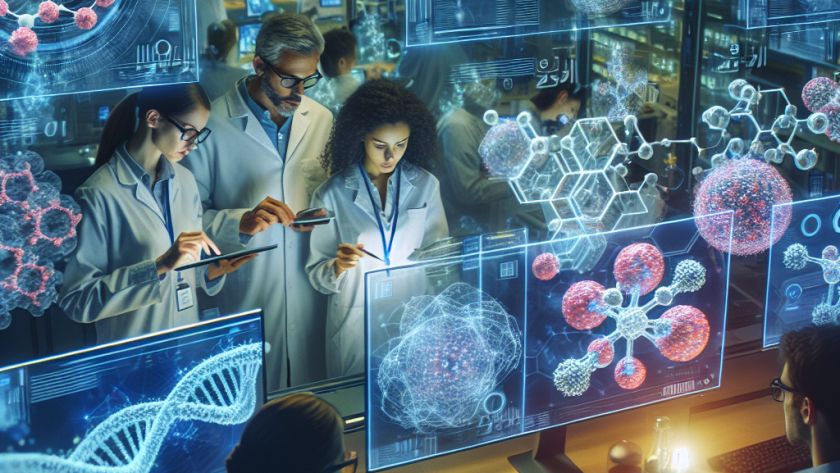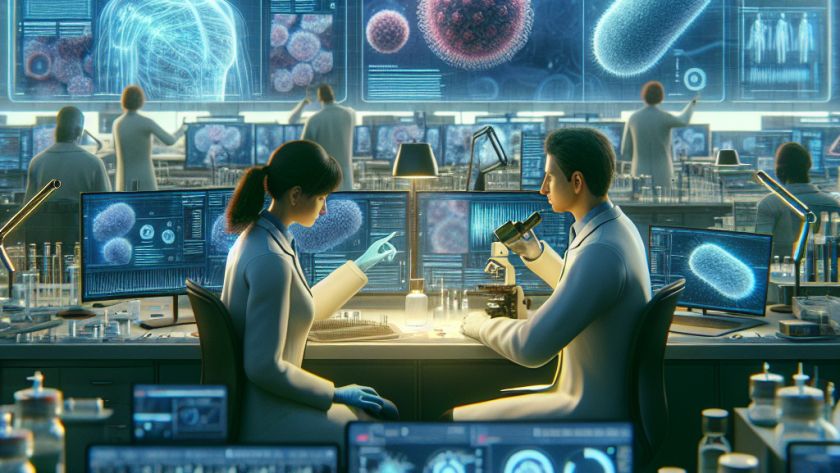


Using artificial intelligence in the form of deep learning, researchers from MIT have discovered compounds capable of killing methicillin-resistant Staphylococcus aureus (MRSA), a drug-resistant bacteria that reportedly causes over 10,000 deaths in the U.S. each year. This breakthrough was achieved by training a deep learning model using predictive information based on antibiotic potency of a…

A powerful new class of antibiotics capable of killing drug-resistant bacteria has been discovered by researchers at the Massachusetts Institute of Technology (MIT), by utilizing a subtype of artificial intelligence (AI) known as deep learning. Results from the study, published in the journal Nature, demonstrate the compound's effectiveness against Methicillin-Resistant Staphylococcus Aureus (MRSA), a bacterium…

Since the 1970s, finding new antibiotics has been challenging. The World Health Organization now considers the antimicrobial resistance crisis as one of the top 10 global public health threats. Bacteria can become resistant to antibiotics, especially when an infection is treated repeatedly. Some bacteria become metabolically inert, avoiding detection by antibiotics that only respond to…

Researchers at MIT and the MIT-IBM Watson AI Lab have developed an AI system designed to educate users on when to trust an AI's decision-making process - for instance, a radiologist determining if a patient's X-ray shows signs of pneumonia. The training system identifies scenarios where the human should not trust the AI model, automatically…

Researchers from MIT and the MIT-IBM Watson AI Lab have developed a system to teach users of artificial intelligence (AI) technology when they should or shouldn't trust its outcomes. This could be particularly beneficial in the medical field, where errors could have serious repercussions.
The team created an automated system to teach a radiologist how…

Researchers at MIT and the MIT-IBM Watson AI Lab have developed a method of teaching users when to collaborate with an artificial intelligence (AI) assistant. The model creates a customised onboarding process, educating users on when to trust or ignore an AI model’s advice. The training process can detect situations where the AI model is…

Researchers at the Massachusetts Institute of Technology and the MIT-IBM Watson AI Lab have developed an onboarding system that trains humans when and how to collaborate with Artificial Intelligence (AI). The fully automated system learns to customize the onboarding process according to the tasks performed, making it usable across a variety of scenarios where AI…

Researchers at MIT and the MIT-IBM Watson AI Lab have developed a system that teaches users when to trust AI and when to ignore it, and it has already led to an approximately 5% increase in accuracy during image prediction tasks. The researchers designed a customised onboarding process, which is when the user is familiarized…

Researchers from MIT and the MIT-IBM Watson AI Lab have developed a system that instructs users when to trust an AI system’s decision-making. In medicine, there might be instances like a radiologist using an AI model for reading X-rays where human intervention can make a difference. However, clinicians are uncertain whether to lean on the…

Researchers from MIT and the MIT-IBM Watson AI Lab have developed an onboarding process which teaches users how to effectively collaborate with artificial intelligence (AI) assistants. The system was designed to provide guidance to users and to improve collaboration between humans and AI. The automated system learns how to create the onboarding process by gathering…

Researchers from MIT and the MIT-IBM Watson AI Lab have developed an automated system that trains users on when to collaborate with an AI assistant. In medical fields such as radiology, this system could guide a practitioner on when to trust an AI model’s diagnostic advice. The researchers claim that their onboarding procedure led to…
